Word Recognition Building Vocabulary Worksheets for Ages 4-5
9 filtered results
-
From - To
Boost early literacy with our "Word Recognition Building Vocabulary Worksheets for Ages 4-5." Curated to engage young learners, these worksheets nurture essential reading skills through fun and interactive activities. From matching pictures to words, to identifying rhyming words and sight words, each worksheet is thoughtfully designed to build a strong vocabulary foundation. Perfect for preschool and kindergarten children, these printable sheets support word recognition and language development, paving the way for reading success. Foster a love for learning with engaging exercises that make mastering new words an enjoyable adventure for your little one!
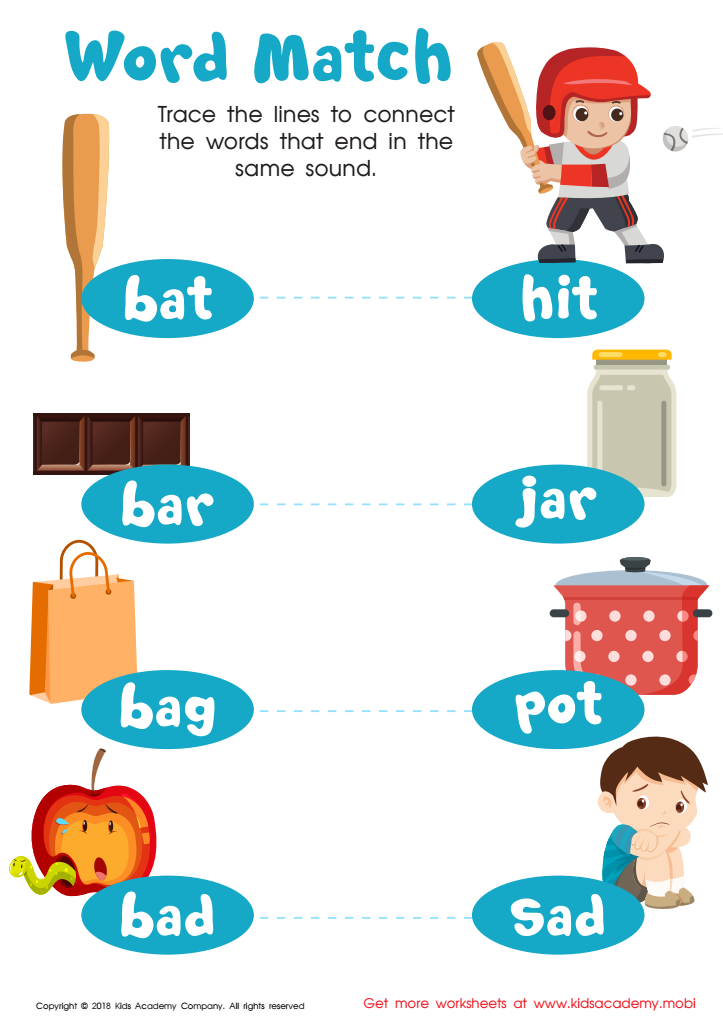

Word Match Reading Worksheet
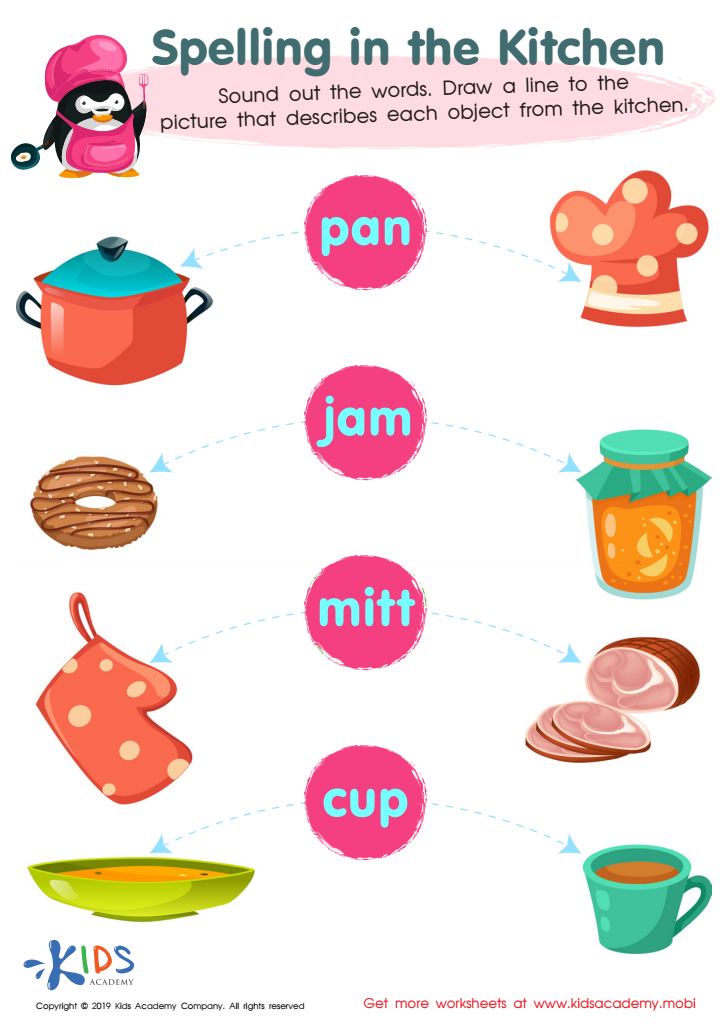

Spelling in the Kitchen Worksheet
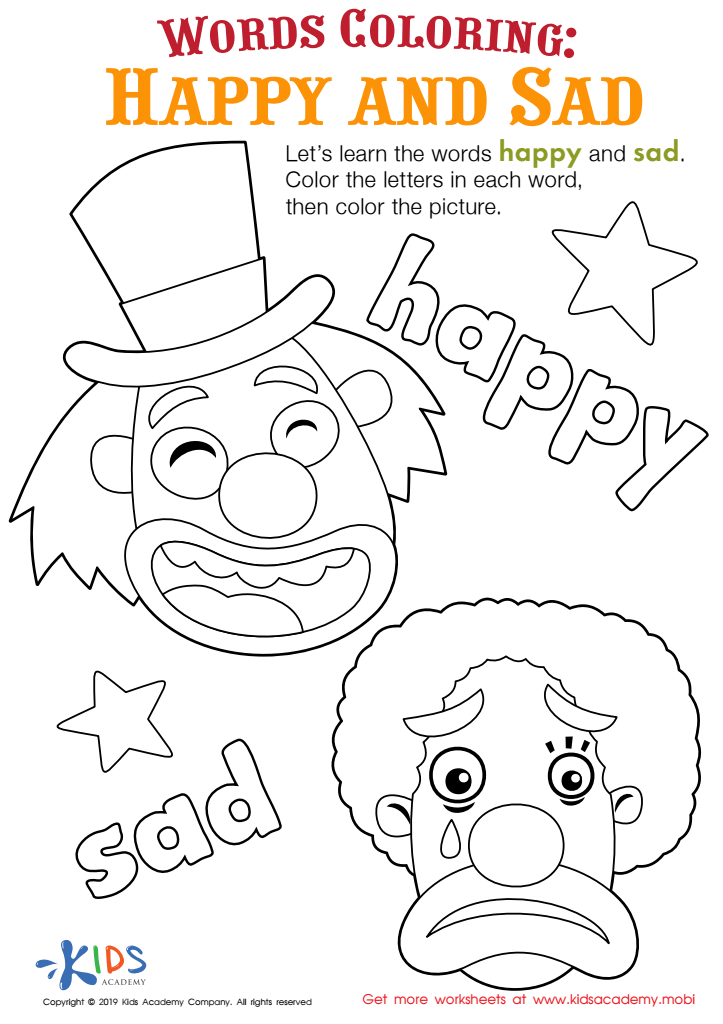

Happy and Sad Words Coloring Worksheet
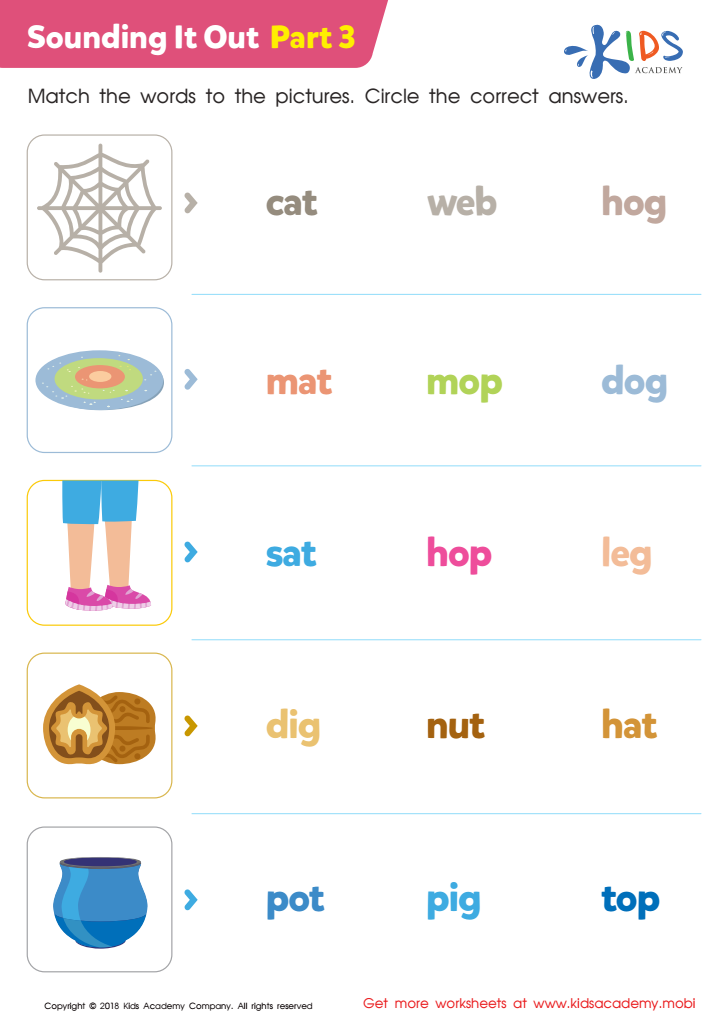

Sounding it Out: Part 3 Worksheet
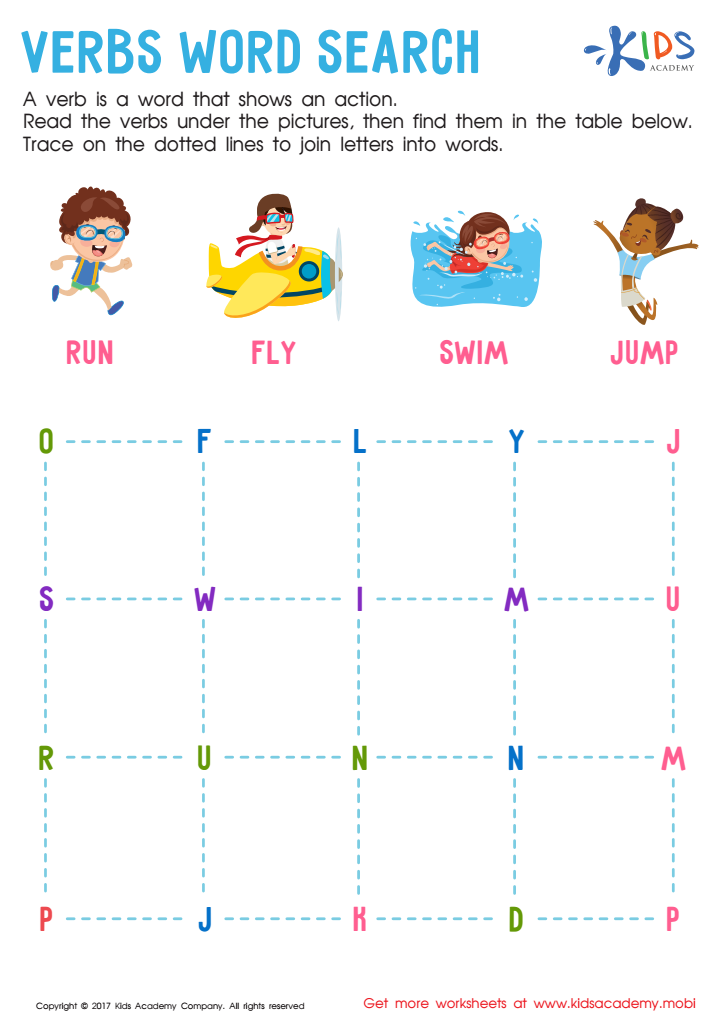

Verbs Word Search Worksheet
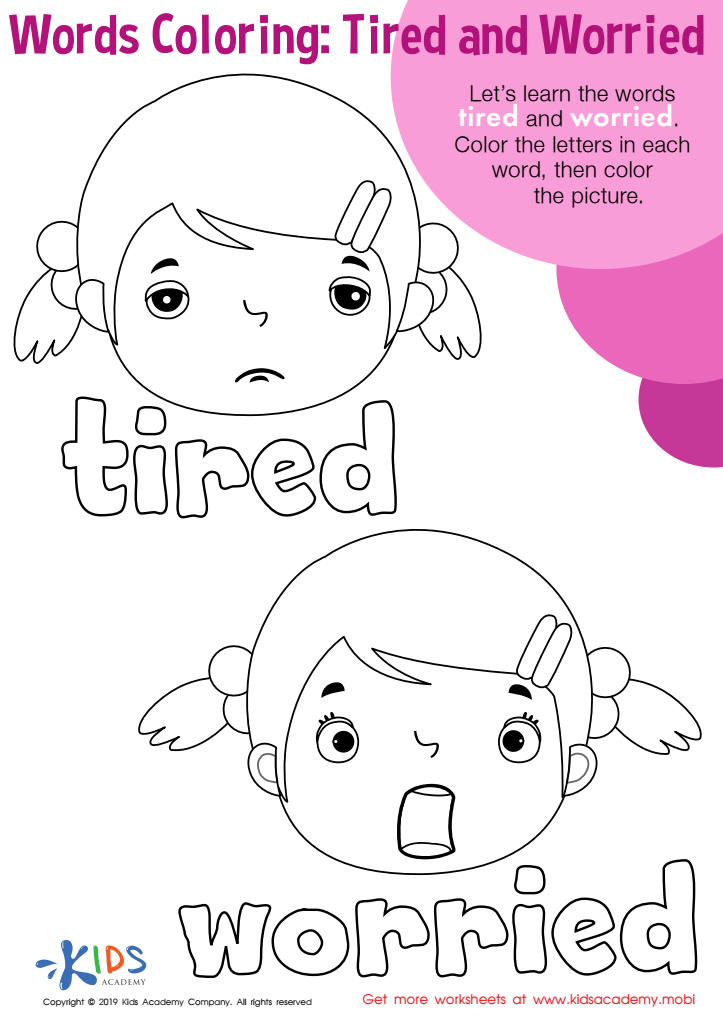

Tired and Worried Words Coloring Worksheet
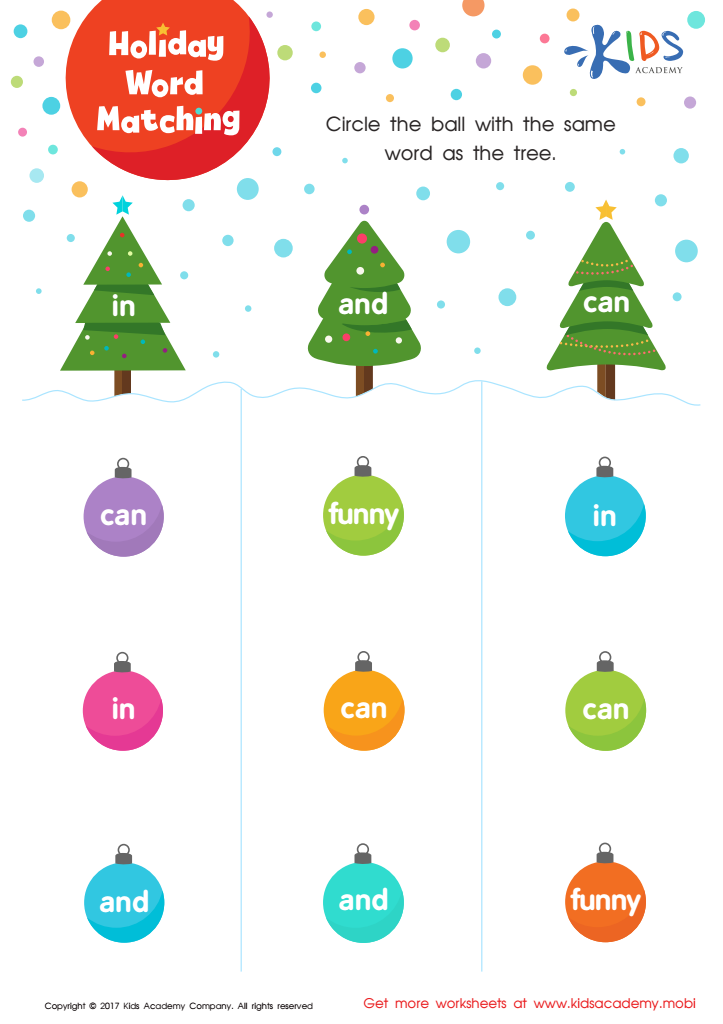

Holiday Word Matching Worksheet
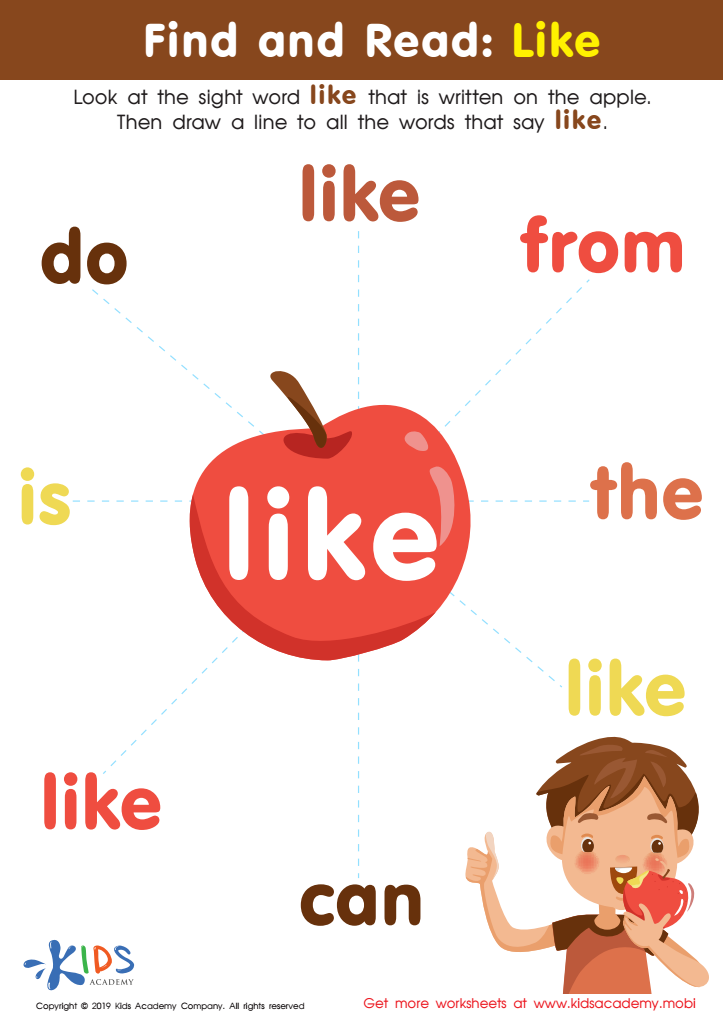

Find and Read: Like Worksheet
Building word recognition and vocabulary for children ages 4-5 is crucial for developmental and educational reasons. At this formative stage, young minds are highly receptive, and establishing a robust vocabulary foundation sets the stage for future academic success.
First, word recognition is essential for reading proficiency. As children begin to decode and understand written language, recognizing common words quickly helps them transition from decoding individual letters and sounds to fluent reading. Fluency in reading is directly linked to better comprehension skills.
Additionally, a rich vocabulary aids verbal communication. At ages 4-5, children are still fine-tuning their speaking abilities. Exposure to a wide range of words expands their expressive language capabilities, allowing them to articulate thoughts, emotions, and ideas more effectively, which is critical for social interactions and emotional development.
Moreover, early vocabulary development has been shown to correlate with later success in school across various subjects. Words are the building blocks of thought. When children have an extensive vocabulary, they can understand complex ideas, follow instructions better, and engage in problem-solving more efficiently.
Teachers and parents play pivotal roles in this developmental phase by creating language-rich environments and engaging in interactive reading, conversation, and play. This proactive approach helps ensure children are well-equipped for the academic challenges ahead, fostering a lifelong love for learning.

 Assign to the classroom
Assign to the classroom
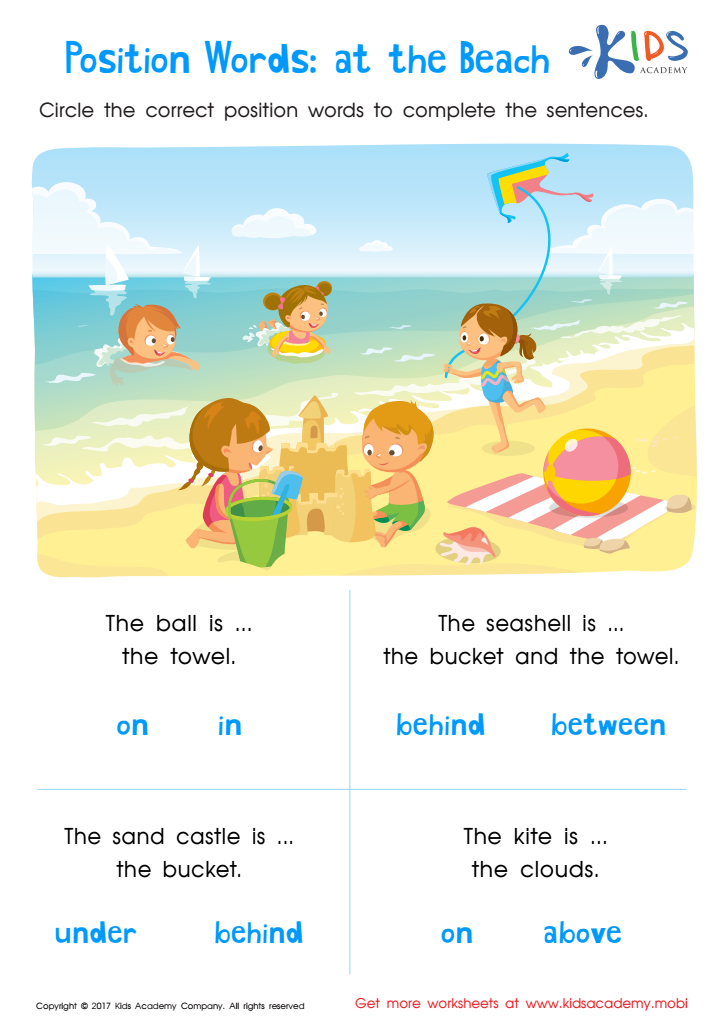
.jpg)



.jpg)







